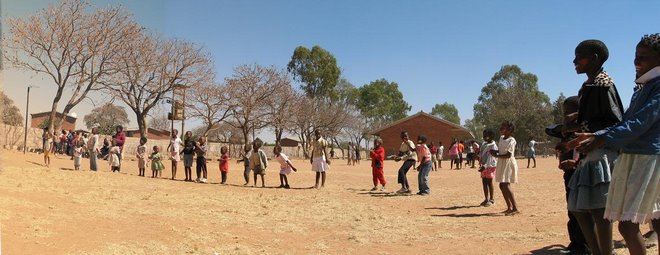I asked Jesse Schwamb, our Director for Sustainable Development, to explain inflation and how it happens. The IMF estimates Zimbabwe's inflation to be over 150,000% and still others say it is even higher. This week, the ZD is trading at $20Million Zimbabwe Dollars to $1USD, a jump from $12M ZD:$1USD on Monday. Craziness!
It's a good read and very informative, without swallowing you into numbers. It helps people like me understand why what is happening is happening and how it impacts our projects. Enjoy!
-Ryan Keith
Memorandum
To: Ryan Keith; President, Forgotten Voices International
CC: All constituents of and volunteers with Forgotten Voices International
From: Jesse Schwamb, Director for Sustainable Development
Date: 2/29/2008
Re: For Immediate Release & Communication: Understanding How Inflation Happens
What is “inflation”?
Inflation may be simply defined as a persistent rise in the costs of goods and services. When things we buy regularly – such as food, fuel, or housing – increase in price, inflation is occurring. A rise in the price of various goods generally means that they are less affordable causing us to react by choosing to buy less, use products more sparingly, or go without. This increase in the overall cost of goods and services over time, and the spending decisions that accompany this change, is what economists call inflation. Inflation, as measure of rising prices, is commonly expressed as a percentage. For instance, you may read in the Wall Street Journal that general inflation in the
How does inflation happen?
There are many complicated economic variables which collectively influence a country’s rate of inflation. However, the following simple example demonstrates the root cause of inflation.
1. In the small fictitious country of Inflationland, there are ten people who want to buy a loaf of bread and only seven loafs of bread available for sale. The bread sellers can increase the price of bread because some people are willing and able pay more to get the bread the want.
2. People – including those making the bread in the bakeries – demand higher wages so they can afford to buy bread. The cost of making bread increases because the bread bakers are requiring more money. So the selling price of bread also increases.
3. When a loaf of bread begins to cost more than people can afford, they stop buying. Fewer loafs of bread are needed, and the bakery lays off workers.
4. Unemployed people buy less of everything so the economy slows down. This is known as a recession. Bread sellers – desperate to sell their small, but stagnant inventory of bread – offer their bread at sale prices.
5. So if ten people want bread and only seven loafs are available, the cycle begins again.
This cycle of inflation is currently occurring within









